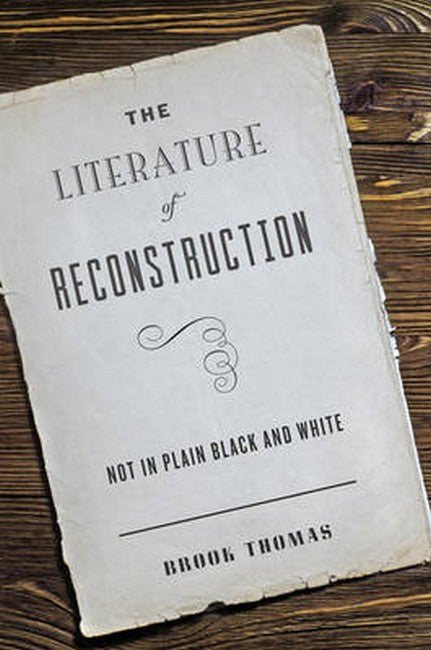In this powerful book, Brook Thomas revisits the contested era of Reconstruction. He evokes literature's immediacy to recreate arguments still unresolved today about state versus federal authority, the government's role in education, the growing power of banks and corporations, the paternalism of social welfare, efforts to combat domestic terrorism, and the difficult question of who should rightly inherit the nation's past. Literature, Thomas argues, enables us to re-experience how Reconstruction wasand remainsa moral, economic, and political debate about which world should have emerged after the Civil War to mark the birth of a new nation.
Drawing on neglected nineteenth-century historiographies and recent scholarship that extends the dates of Reconstruction in time while stretching its geographic reach beyond the South, The Literature of Reconstruction uses literary works to trace the complicated interrelations among the era's forces. Thomas also explores how these works bring into dialogue competing visions of possible worlds through chapters on reconciliation, federalism, the Ku Klux Klan, railroads, and inheritance, contrasting well-known writers, including W. E. B. Du Bois, Thomas Dixon, and Charles W. Chesnutt, with relatively neglected ones, including Albion W. Tourgée, María Amparo Ruiz de Burton, and Constance Fenimore Woolson. Some authors opposed Reconstruction; others supported it; and still others struggled with mixed feelings.
The world Thomas conjures up in this groundbreaking new study is one in which successful remedies to racial wrongs remain to be imagined.

